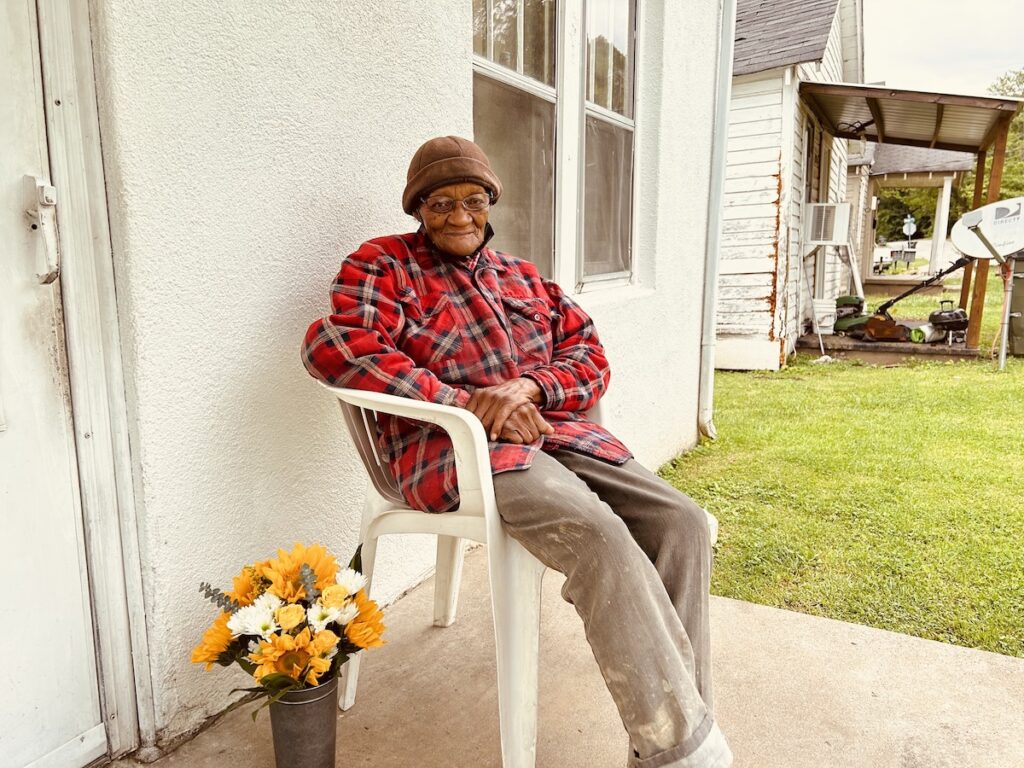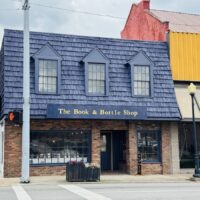My father-in-law, Bill Crenshaw, operated a milk plant known as Model Pure Milk Co. at the corner of 13th and Clay streets in Hopkinsville, which also had the Cheese Store for retail customers. Starting in 1987, Bill and my husband, John, operated a vending business on that site that was sold in 2006.
Many characters and friends worked in nearby businesses and often stopped by to visit, buy cheese or get a drink and sandwich. Although the building was demolished in 2023, its absence does not diminish the memories of the people and events associated with the former businesses.
One person who came by quite frequently was a spry, petite woman named Gracie who walked around Hopkinsville for many years picking up aluminum cans to recycle. She became a friend of Bill and his wife, Mavis, during her stops at the Cheese Store and Tom’s Vending.

We lost contact with Gracie after the sale of the milk plant to Pennyrile Allied Community Services during the pandemic. Then, one day last year, I saw her near the old Cheese Store where PACS now operates the Hopkinsville Transit Service. I asked her if I could take her home and she asked for a ride to the Dollar General Store on East Ninth Street near her home. I have seen her out a few times since then and wanted to learn more about her life.
Recently, I met Gracie Radford Lewis on her front porch, where she was happily sitting and watching the activities in her neighborhood. I asked her when she started walking around Hopkinsville collecting cans for recycling. She told me that a man who owned a restaurant near Haddock’s Grocery saw her walking and suggested that she could pick up cans and bring them to the recycling center on East Ninth Street.
Another reason she began walking was because her doctor told her she needed to get exercise after she had surgery as a result of a car wreck in 1989. Gracie said she’s had six operations during her life, including removal of cancer in her bowels in 1974 by Dr. Philip Brooks at his private hospital for Black residents on South Virginia Street. She spoke highly of Dr. Brooks.
Gracie was born near Casky, between Hopkinsville and Pembroke, in September of 1937. Her parents were Marion Sanders and Frank James Radford, and she had three brothers and two sisters. They lived on a farm on Bradshaw Road. Her brother Robert is her only living sibling.
With a broad smile, Gracie described her childhood as “the good old days.” She had to get up early to walk to school, and she and her siblings helped their father on the farm with all kinds of chores, including picking blackberries and cutting tobacco.
After she left school, she moved to the town of Casky where she worked cleaning houses and offices. She proudly called herself a working woman and said that no one could clean like she did.
Gracie eventually moved to Hopkinsville, where she worked at the Moelight factory (which later became Thomas Industries) for many years and continued her reputation as a hard-working woman.
Living on Cottage Street, she met her future husband, Morgan Lewis, who owned a coal yard nearby. Gracie has four children and many grandchildren, some of whom live in Hopkinsville, and others in Bowling Green and Louisville.
For the past 35 years, she has rented a house off East Ninth Street near Belmont Hill.
Gracie recalled that she met Bill and Mavis at the Cheese Store when she would stop by with her grandson. She said that they always were so nice to him. Her routes for collecting cans often took her by the Cheese Store. Gracie and Mavis forged a close bond, and Gracie often called to check on Mavis when she didn’t come into town as frequently.
Following the advice of her physician, Gracie got up every morning and left her house in search of cans. “I walked everywhere — to the hospital, the West Side, to 23rd Street,” she said.
She said some people were suspicious of her activities and she believed that the police were watching her because they thought that she was doing drugs. She went so far as to complain to then-Mayor Rich Liebe about it.
However, most people she encountered on her routes were friendly and helpful and often saved cans for her. She could carry up to three full garbage bags of cans at a time. After the recycling facility moved from East Ninth out to Russellville Road, friends and acquaintances would drive her there to exchange cans for cash.
As her agility and strength have decreased over the past few years, she has ceased her daily walks around town. From time to time, she will see some of the people she had met on her treks (including this writer), and at least one store owner still brings cans to her house.
Gracie has mostly pleasant memories of her childhood, places of employment and her years of collecting cans. Most importantly, she has a positive attitude about the future. As I got up to leave, she proclaimed, “God is my best friend!”
Julia Crenshaw is an attorney at White, White & Crenshaw in Hopkinsville. She lives on a farm in Todd County with her husband John. They have two adult children.






